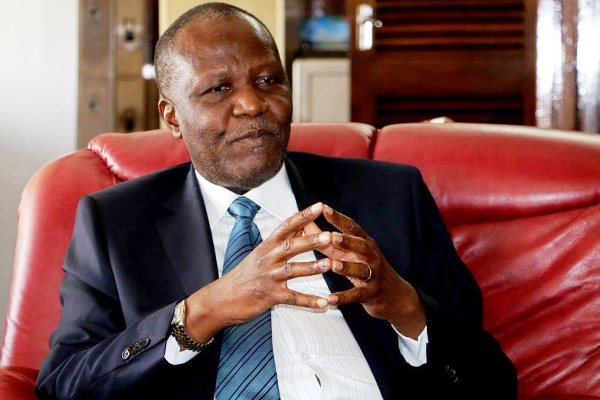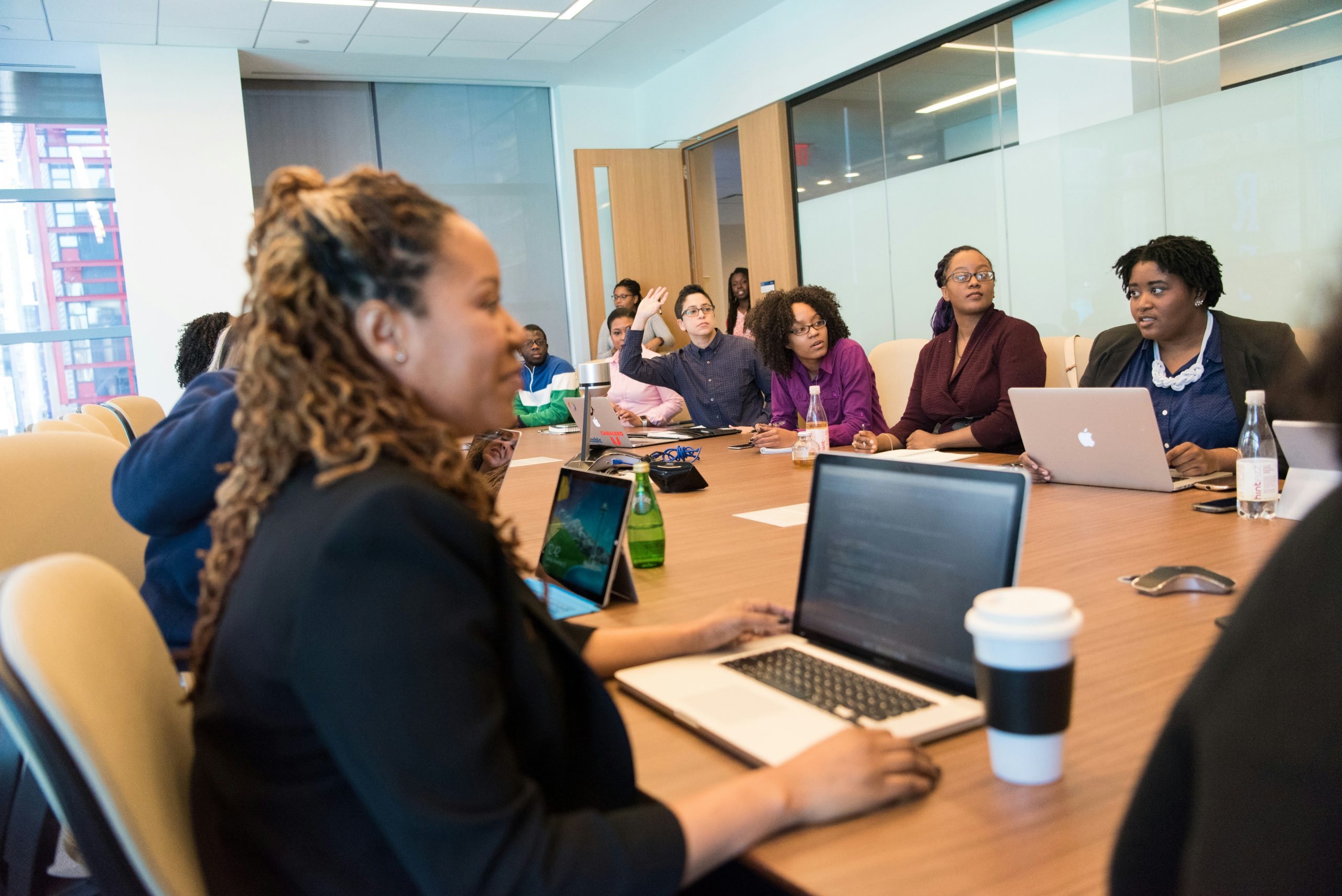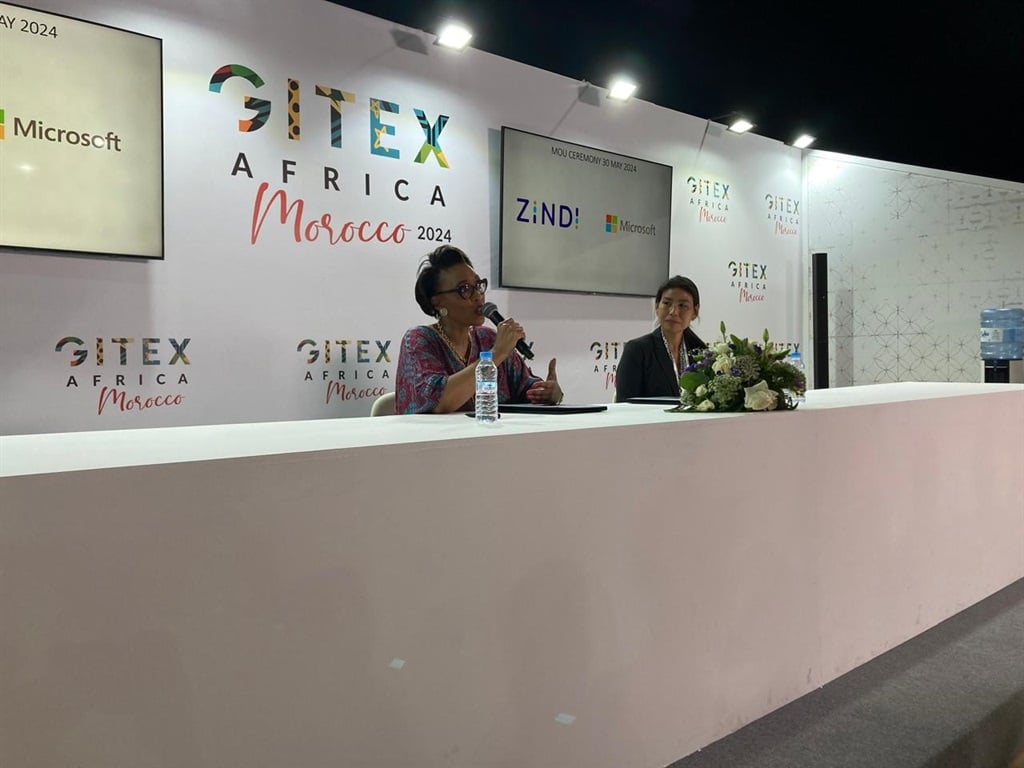











Google for Startups has unveiled the 24 startups selected for the 2024 cohort of the Growth Academy: AI for Health program. The program is designed to support high-potential startups across Europe, the Middle East, and Africa (EMEA) that are leveraging artificial intelligence (AI) to revolutionize healthcare and medical research. Among the selected startups are Nigeria’s Healthtracka, Kenya’s Thalia Psychotherapy and TibuHealth, and South Africa’s Zoie Health. The three-month program will provide participants with intensive training, mentorship, and networking opportunities. Startups will benefit from workshops on best practices for AI, leadership development, responsible innovation, product design, and customer acquisition. Google experts from Research, Health, Verily, Fitbit, and DeepMind will offer one-on-one mentorship sessions and technical project support.
In South Africa, Zindi, a local startup, is building a massive AI and data science talent pool. Zindi recruits over 1,000 people each month onto its AI and data science training platform, using a gamified, project-oriented approach to train individuals across the continent in data science skills. The company was founded in 2018 with the goal of developing data science skills in Africa, and it has experienced rapid growth as demand for digital skills has increased. Zindi has recently signed a memorandum of understanding (MoU) with Microsoft to equip 10,000 Africans with data science and artificial intelligence skills [93bb636e].
President Tharman Shanmugaratnam emphasized that artificial intelligence (AI) and climate change are the most complex and important challenges faced by the global community. Speaking at the opening gala of the fourth edition of the Asia Tech x Singapore Summit, President Tharman mentioned that Singapore can achieve early successes with AI in various sectors, including healthcare, food security, fraud detection, education, and finance. He highlighted the potential of AI to address pressing issues and improve people's lives. The event, organized by the Infocomm Media Development Authority (IMDA), aims to promote discussions and collaborations in the tech industry.
According to a report by Google, AI products and solutions are projected to contribute US$146 billion to Singapore's economy by 2030. The report highlights the potential of AI in various sectors such as healthcare, transportation, and finance. Google also emphasizes the need for a supportive ecosystem and investment in AI research and development to fully realize these economic benefits. The report serves as a call to action for Singapore to prioritize AI adoption and innovation.
Africa is on the verge of an economic transformation, with technology and artificial intelligence (AI) at the forefront. Experts predict that tech advancements could contribute over $15 trillion to Africa’s gross domestic product (GDP). However, Africa faces challenges related to infrastructure, lack of AI strategies in most countries, digital divide, skill development, and retention. Africa attracts less than 2% of global investment capital. GITEX Africa 2024 aimed to address issues related to the continent’s use of AI and technology, including rural transformation, support for women in tech, the fourth industrial revolution, and venture investments.
In Zambia, the government is integrating artificial intelligence (AI) into its National Development Plan (NDP) to boost key sectors such as agriculture, mining, manufacturing, and tourism. AI applications can optimize crop yields, identify plant diseases, and promote sustainable water management in agriculture. In mining, AI can enhance mineral exploration and resource management, leading to increased efficiency and safety. Integrating AI into manufacturing processes can optimize production lines, improve product quality, and reduce waste. AI-powered chatbots and personalized recommendations can enhance the visitor experience and boost tourism revenue. The Minister of Science and Technology, Felix Mutati, has announced a public lecture on the prospects of AI in transforming Zambia, organized by Compu-Connect Education, the University of Lusaka, and the Ministry of Technology and Science [4e87168e].
African countries are increasingly adopting disruptive technologies like Artificial Intelligence (AI) and Blockchain to optimize operations, boost transparency, and enhance service delivery for their citizens. Mauritius is a frontrunner in AI governance, implementing a comprehensive national strategy. South Africa has advanced infrastructure and a commitment to responsible AI development, but faces challenges in skills gap and data infrastructure. Egypt focuses on education and training to prepare future generations for an AI-driven workforce. Tanzania aims to leverage AI to improve e-government services and reduce corruption. Ghana aims to become Africa's first blockchain-powered government, enhancing security and optimizing government operations. African blockchain startups have seen a significant surge in funding. Access to broadband internet in Africa has risen to 36% [ad237c0b].
The African Development Bank (AfDB) and Intel have partnered to train 3 million Africans and 30,000 government officials in AI skills. The training aims to equip Africans with Fourth Industrial Revolution (4IR) skills to accelerate growth and productivity in sectors such as agriculture, health, and education. The partnership will also support the development of policy and regulatory frameworks in AI, 5G, Wi-Fi 6E, data, and cloud. Intel aims to make advanced technologies like AI accessible to all and enable widespread participation in the digital economy. The African Development Bank emphasizes the importance of digital skills for Africa's youth and is committed to shaping the digital future of Africa and empowering its youth [35934c1e].
During a webinar hosted by the African Technology and Innovation Institute, experts called for the development of Afrocentric artificial intelligence to address climate challenges in Africa. The founder of the institute, Prof. Rose Ekeng-Itua, emphasized the need to equip Africa's human talent with AI skills for climate action. The Dean of the Quality Assurance and Planning Office of the Kwame Nkrumah University of Science and Technology (KNUST), Prof. Jerry Kponyo, advocated for Africa to invest in research and development to lead the global conversation on climate action. Africa is disproportionately affected by climate change despite contributing less than 10% to global greenhouse gas emissions. The continent faces significant challenges and requires over $3tn in investments for mitigation and adaptation efforts by 2030 [2919d71c].
Malta, a small island in the Mediterranean Sea, is positioning itself as an AI hub by 2030. The country already has 56 AI startups, which is about 1 startup for every 9,500 people. In comparison, the United States has around 24,000 AI startups, or 1 for about every 14,000 residents. Malta aims to use AI to automate tasks, improve education, and solve traffic issues. The country's efforts to become an AI center began in 2019, and it is now working on a new AI strategy under the EU's AI Act. Malta's focus is on safely deploying AI and developing initiatives to combat job displacement and establish ethical frameworks. The country's recognition of the importance of AI has given it a head start in the field [2d00bb10].
The US has been playing co-host to the Men’s Cricket World Cup this summer, sparking interest in cricket among new fans. Atlanta-based startup StatX Sports is capitalizing on this interest by providing live data and betting odds for cricket matches. The platform plans to expand into other sports as well. StatX recently secured a $600k pre-seed round to continue growing its platform [839deba4].
Zambia's Minister of Science and Technology, Felix Mutati, has announced the country's efforts to establish an Artificial Intelligence (AI) Framework. The government is collaborating with the Tony Blair Institute to craft an AI Strategy and is also working with the European Union to create a Startup Bill. The Minister has called on Zambians to embrace AI, stating that it will significantly improve everyday life. The AI strategy is expected to be launched in July 2024. Zambia joins Nigeria and South Africa in their pursuit of AI integration [c0adc018].
Zambia is in the process of establishing an artificial intelligence (AI) framework, according to the country's Minister of Higher Education, Brian Mushimba. The framework aims to guide the development and implementation of AI technologies in Zambia. Mushimba highlighted the importance of AI in various sectors, including healthcare, agriculture, and education. The government is working with various stakeholders, including universities and research institutions, to develop the framework. The goal is to ensure that AI is used responsibly and ethically to benefit the country's development [942a77a3].
Lucky Uwakwe, Chairman of Nigeria's Blockchain Industry Coordinating Committee (BICCoN), emphasizes the importance of using AI to preserve African languages at risk of extinction. He highlights the urgent need to protect these languages as fewer people speak them due to socio-economic factors. Uwakwe advocates for leveraging AI and blockchain technologies to preserve and restore endangered languages. He also points out the lack of language support provided by global tech giants like Google, which only offers translation for a few Nigerian languages. Uwakwe believes that technological advancements like AI and blockchain could play a crucial role in preventing language loss and extinction [3f7f1253].
Franka Undie, a Nigerian from Obudu Local Government Area of Cross River State, has graduated from the RUDN University, Russia, with the highest distinctions in Applied Mathematics and Informatics/Data Science and Digital Transformation in her Master’s degree. Her outstanding achievements include receiving a special award for her groundbreaking scientific research aimed at revolutionizing the healthcare sector through Artificial Intelligence (AI). Her MSc thesis has set a new benchmark in the application of AI in healthcare, focusing on developing an AI system that aids doctors in decision-making and provides clear explanations for its recommendations. The system has a user-friendly interface, making it accessible to medical professionals without extensive technical backgrounds. Franka was honored with a special award by RUDN University for her scientific contributions in the field of AI and healthcare. She is married to Mr. Matthew Okache, the Chief Press Secretary to Rt. Hon. Elvert Ayambem, Speaker of the Cross River State House of Assembly.
OpenAI’s Sam Altman and Thrive Global’s Arianna Huffington have launched Thrive AI Health, an AI health coach that provides personalized health recommendations using biometrics and lifestyle habits. The AI coach is driven by scientific data and trained on Thrive's microhabit changes. The platform's AI health coach offers personalized sleep, food, fitness, stress management, and social connection recommendations. The product aims to improve health spans and life spans by using AI to make behavior change more powerful and sustainable. The CEO of Thrive AI Health is named Love. The company has partnered with Dr. Gbenga Ogedegbe to test and iterate the product on underserved populations. The platform has robust privacy and security measures. The Alice L. Walton Foundation is an investor, and the company has partnerships with Stanford Medicine and the Rockefeller Neuroscience Institute. The product will be available to Thrive Global's employer base, with plans to scale through self-insured employers and pharmaceutical companies. [fdea0870]
However, an article from Deccan Herald argues that the idea of hyper-personalization in AI health coaches is flawed and that individual lifestyle choices are not the only factors that determine health. The article emphasizes the importance of considering social determinants of health, such as access to healthcare and quality food, in addressing chronic disease problems. It criticizes the limited focus of technologies like Thrive AI Health on the individual and calls for a broader consideration of societal factors in healthcare [267516d3].